Yes, digging in the dirt is actually good for you!

When it comes to warm-weather activities that are good for your health, you probably think of walking, hiking or running. But there’s another beloved pastime that holds a lot of benefits with a bonus to boot: Gardening.
Advertisement
Cleveland Clinic is a non-profit academic medical center. Advertising on our site helps support our mission. We do not endorse non-Cleveland Clinic products or services. Policy
Even if you don’t have the greenest of thumbs, there are many health benefits — both physical and mental — that come with digging into the soil and doing some planting. And that bonus? You get exercise and yield a basket of tomatoes, peppers or any number of other fruits, veggies or decorative plants.
But some fear that gardening could be harmful to your body, like to your spine. But don’t worry. To get the low-down on how gardening does you good and tips to get you started, we spoke to neurosurgeon and spine specialist Deborah Benzil, MD.
The health benefits of gardening cover a wide range, according to Dr. Benzil, and they work in tandem toward one essential goal: preventing osteoporosis.
Osteoporosis is a condition in which your bones weaken, losing mass and strength and putting them at greater risk of fractures. Affecting over 50 million people in the U.S. alone, it’s most prominent in people over 50 years of age, and affects more women than men.
“There’s also a natural softening of our bones as we age that can make them more susceptible to fractures and breaks,” says Dr. Benzil. “While you can get those fractures from a fall, if the softening of the bones gets bad enough you can sustain such fractures, particularly in your spine, from just coughing or bending over.”
Advertisement
A healthy diet combined with other elements can help keep osteoporosis at bay. And gardening checks a lot of those boxes.
“First of all, you get outside,” Dr. Benzil notes. “You get to breathe in that fresh air and you’re exposed to sunlight that stimulates vitamin D.” Getting regular, and safe, exposure to sunlight a few times a week is important in providing your body with the essential vitamin that keeps bone strong and helps your body absorb calcium.
Everyone knows exercise is good for you, but gardening strikes a perfect balance, particularly for those most at risk for osteoporosis: It not only gives you a workout that can strengthen your bones, but also one that’s easy for people of all ages.
“When you exercise in a pool, you’re getting cardio and muscular work but you don’t get that bone use,” explains Dr. Benzil. “When you’re gardening, you do get that stimulation through weight-bearing exercise like walking and using your gardening tools. You’re using those muscles in a certain way that stimulates both bone and muscle strength.”
It’s the best kind of exercise, she notes, in preventing the softening of bones.
Dr. Benzil points out that there are many brain health benefits to gardening regularly. While there have been several studies that focus on how gardening is a great therapeutic treatment for people with dementia, there’s also been research that shows gardening is one of many activities that potentially prevents dementia.
There are also a few mental health benefits to gardening, says Dr. Benzil. Besides the boost to your mood from being outdoors in the fresh air, there’s a sense of satisfaction you get as you see your plantings grow and flourish.
“Gardening allows for a sense of satisfaction and mindfulness because you see the flowers, you smell the fresh garden and you can bring your fresh vegetables in,” she says. “You see the progress and feel that sense of accomplishment.”
It also can provide social interaction with others, whether you’re in your yard or a community garden. “The minute you get out in your yard, you’re likely to see your neighbors or others and have a chance to interact,” she adds.
And, Dr. Benzil reminds us that gardening was a great way to interact during the worst of the COVID-19 pandemic when social distancing was key. “People were in their gardens retained socialization, a safe way to talk with others at a time when face-to-face contact was extremely limited.”
While gardening is easier on the body than running or mountain-climbing, that doesn’t mean you shouldn’t stay safe and be aware of certain tips that can help make it a better experience. “Understand that gardening is an exercise. Any time you start a new exercise program, you want to make sure that you do it in the right way,” advises Dr. Benzil.
Advertisement
Among her tips:
While you may not think stretching is important for gardening, Dr. Benzil assures us it absolutely is. Doing light stretches and warming up your body before you start loosens up muscles for the activity you’re about to do, including bending and digging.
Stretching after is just as, if not more, important. “Take the time to do a good, deep 10-to-15 minute stretch, particularly for your upper and lower back,” she says. “These areas get a lot of stress during gardening and without proper form and stretching you could be doing damage to your spine.”
If you experience back issues, consider a raised garden so you’re not doing as much bending over, putting stress on your spine and back muscles.
Of course, even with the best preparation, soreness is still possible. Taking care of yourself afterward shouldn’t be dismissed. Stretching is still the best thing but occasionally using over-the-counter anti-inflammatories, like ibuprofen or naproxen, is OK as long as they don’t cause any other health complications.
Advertisement
Using ice can also help relieve pain or soreness in the immediate aftermath. “If you’re still sore a few days later, that’s when you could switch to heat, but start with ice,” says Dr. Benzil.
Finally, again, don’t forget to stretch. “Continue to stretch daily because you want to tease out those sore muscles, which are locked and rigid,” Dr. Bezil encourages. “Stretching allows those muscles to relax and come back to their normal state.”
And with your muscles properly stretched, you’ll be ready to plan your next round of gardening, basking in the glory of the great outdoors.
Advertisement
Learn more about our editorial process.
Advertisement
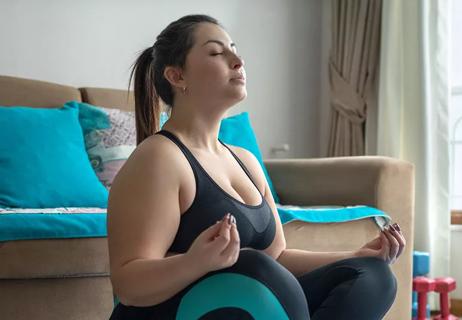
Losing belly fat can reduce your risk for chronic health conditions — try focusing on a diet high in lean protein, exercising regularly, reducing stress and getting quality ZZZs
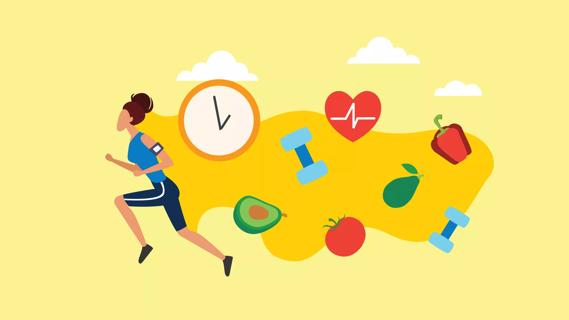
It’s best to exercise before or after your fast, instead of during it
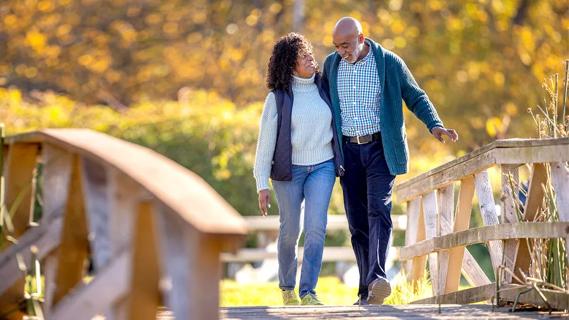
Absolutely! In fact, in many ways, exercise is key to recovery
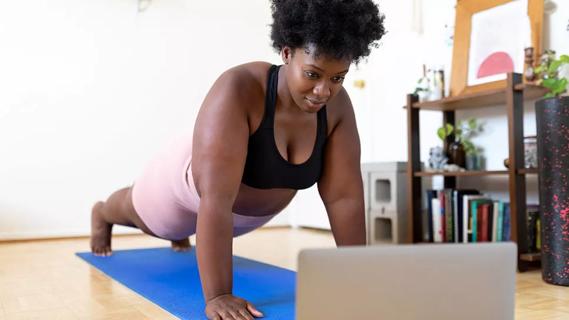
The exercise — which you’ve probably been doing since grade school — can be intimidating, but proper form can help
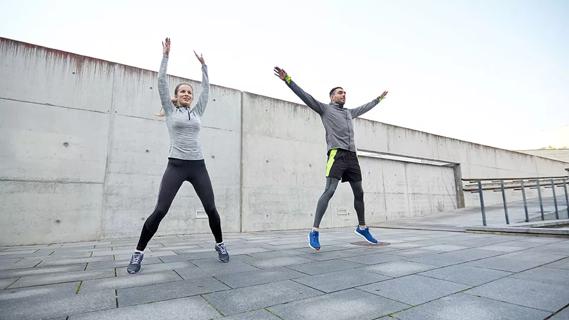
Cardio is great for improving cognition, but strength and balance training are just as important
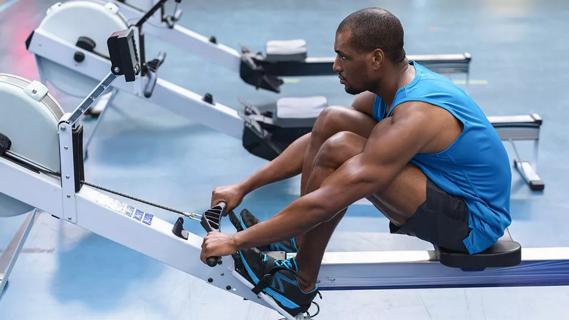
Exercise lowers risk for heart conditions, improves mental health and reduces visceral fat that can compromise your organs
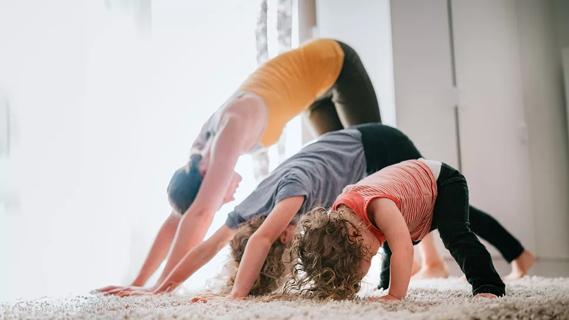
Kids’ yoga can help kiddos become more aware of their physical, mental and emotional selves
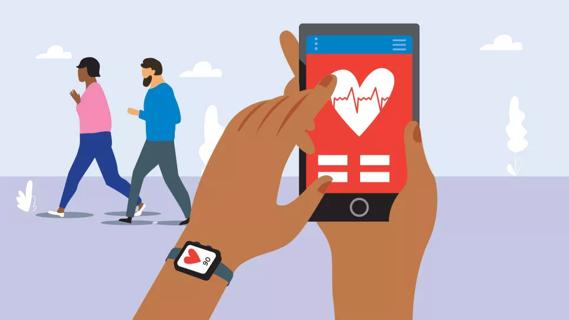
This technology can benefit your workouts by helping you hit your target heart rate, resulting in better overall health and wellness

Type 2 diabetes isn’t inevitable with these dietary changes

Applying a hot or cold compress can help with pain